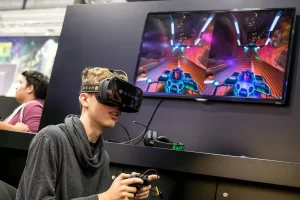
Video games have become an integral part of modern entertainment, captivating millions of players worldwide. As a form of interactive media, video games not only provide immersive experiences but also reflect and shape our culture. However, it is essential to critically analyze the cultural representation found within these games.
The Power of Video Games in Shaping Culture
Video games have grown from simple pixelated adventures to visually stunning and emotionally engaging experiences. With the advancement of technology, game developers can now create expansive virtual worlds that feel almost lifelike. As such, these games are powerful tools that can influence societal beliefs, norms, and stereotypes.
While many games successfully capture the diverse aspects of our global culture, some inadvertently perpetuate harmful stereotypes or exclude certain groups. As technology progresses, it is crucial for game developers, critics, and players to engage in discussions about cultural representation within video games.
Breaking Stereotypes and Embracing Diversity
One aspect often scrutinized in video games is the representation of various cultures and ethnicities. Historically, video games have been criticized for perpetuating stereotypes, such as portraying certain ethnic groups as villains or relying on tropes that reinforce biases. This can have a lasting impact on players, shaping their understanding and perception of different cultures.
However, developers are increasingly recognizing the importance of diversity and inclusion. Many studios are actively working to break stereotypes and provide more meaningful representation. By creating diverse characters, exploring different cultural backgrounds, and fostering inclusive narratives, these games can challenge long-standing biases and foster greater empathy and understanding among players.
The Role of Cultural Consultants in Game Development
One way game developers can ensure accurate and respectful representation is by consulting with experts. Cultural consultants with experience in anthropology, history, and various cultural backgrounds can provide valuable insights that enrich the game’s narrative and character development. Their expertise can help shape the game’s world, ensuring authenticity and avoiding harmful stereotypes.
Additionally, involving diverse teams in game development can contribute to more nuanced and inclusive storytelling. When individuals from different cultural backgrounds and perspectives collaborate, their collective experiences enhance the authenticity of the game and provide a broader representation of our complex and diverse world.
Challenges and Opportunities
While progress has been made in recent years, challenges still exist in achieving proper cultural representation in video games. Limited resources, time constraints, and financial considerations can often hinder the efforts to create inclusive games. However, these challenges also present opportunities for innovation and creativity.
By addressing these hurdles, game developers can tap into a vast market of players looking for more inclusive experiences. The demand for games that genuinely represent diverse cultures is growing, as players recognize the importance of consuming media that respects and reflects their own identities and experiences.
The Impact on Society
Video games are not only entertainment but also a significant influence on our society. As players immerse themselves in virtual worlds, they absorb narratives, ideologies, and values presented within the games. This makes it crucial for developers to recognize the responsibility they have in shaping cultural norms and actively work towards more inclusive representation.
Gaming communities themselves also play a pivotal role. When players engage in discussions about cultural representation, they contribute to a collective understanding and raise awareness about important issues. By demanding and supporting games that genuinely reflect their own cultures and diverse experiences, gamers can push the industry toward more positive change.
The Future of Cultural Representation in Video Games
The evolution of video games continues to provide opportunities for more accurate and inclusive cultural representation. As technology advances, developers have access to more resources, both in terms of graphics and storytelling. This opens up avenues for exploring different cultures, embracing underrepresented perspectives, and challenging existing stereotypes.
Ultimately, the goal is to create an industry where cultural diversity is celebrated, and every player can find a reflection of themselves within the games they play. With collective efforts from developers, players, and critics, video games can truly become a medium that champions cultural understanding, empathy, and representation on a global scale.


